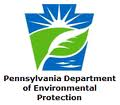 Gas drilling-related companies spilled oils, gases or chemicals about 134 times onto land and into water across Pennsylvania since the beginning of 2011, but the state rarely, if ever, notified the public, as reported by Tim Puko writing in the Pittsburgh Tribune-Review. By law, it doesn’t have to do so.
Gas drilling-related companies spilled oils, gases or chemicals about 134 times onto land and into water across Pennsylvania since the beginning of 2011, but the state rarely, if ever, notified the public, as reported by Tim Puko writing in the Pittsburgh Tribune-Review. By law, it doesn’t have to do so.
Officials from a dozen Western Pennsylvania townships affected by the spills want such notification. The Pennsylvania Department of Environmental Protection records obtained by the Tribune-Review show at least 27 spills from shale drilling in 19 townships in the agency’s 10-county southwestern region during that time. Most officials the newspaper contacted said they knew nothing about the incidents.
PA-DEP officials “don’t tell us any more than they have to. I think we … have a right to know,” said Ed Barale, a supervisor in Amwell. PA-DEP records show Texas-based Range Resources Corp. was responsible for a stream discharge, a drilling fluid leak and an overturned tanker spilling brine in Amwell — all of which township officials learned about weeks later from workers, Barale said. “DEP keeps you in the dark, anyhow. So I don’t have much faith in them,” he said.
The state agency is revising its policy for spill responses, but during 60 days of public comment this spring no municipal officials complained about its communication practices, said Kevin Sunday, DEP spokesman in Harrisburg. The state’s records can be misinterpreted, he said. What DEP classified as a “stream discharge” in Amwell instead was 200 barrels of brine water in a roadside channel that leads to a lined pond the company created to hold spills, Sunday said.
PA-DEP issued citations for at least 52 of 134 drilling-related spills, and said 50 of them involved polluted water. Drillers failed to properly report nearly a third of pollution incidents as required, according to the list of violations. The PA-DEP withheld 92 pages of documents about numerous incidents, saying the state’s open records law allows it to keep investigative records and informants’ names confidential, so the total number of incidents could be higher. The records withheld include “emergency response / notification reports, a chronology of an investigation and an investigative report as to a wide assortment of events in and around various well sites.”
In West Virginia, drillers must identify anyone living within a mile of their wells and notify them of any accidents or spills, said Kathy Cosco, spokeswoman for the West Virginia Department of Environmental Protection. They notify an emergency contact at the county level for emergencies, which aren’t specifically defined, Cosco said.
Ohio has no such requirement, said Linda Oros, spokeswoman at the state’s Environmental Protection agency. “If there’s some sort of public impact where there’s going to be sheltering action, or evacuation that’s required, then, of course, we would notify the public,” Oros said.
Pennsylvania lawmakers have mandated that drillers register geographic coordinates with state and county emergency agencies. An idea with bipartisan support in the House would create a real-time network monitoring system to alert municipal emergency managers – and other county and state officials – of any well-site problems, said state Reps. Randy Vulakovich, R-Shaler, and Bud George, D-Clearfield County.
>>>>> …..
According to Don Hopey as reported in the Pittsburgh Post-Gazette, federal health and environmental agencies are investigating whether Range Resources Inc.’s Yeager Marcellus Shale gas drilling site in Washington County caused toxic air and groundwater pollution that damaged the health of nearby residents.
Three families filed a personal injury lawsuit in Washington County Common Pleas Court last month alleging that their health was damaged and their risk of cancer increased due to exposure to toxic leaks, spills and air pollutants from Range’s operations. Range has denied the charges.
Three plaintiffs, Stacey Haney and her children, moved out of their home on McAdams Road, about 1,500 feet from the Yeager impoundment. The other plaintiffs are Beth, John and Ashley Voyles, and Loren Kiskadden and his mother, Grace Kiskadden, who live in separate homes near the impoundment.
The EPA confirmed that the Yeager drill site is one of three sites in Pennsylvania and seven nationwide that are part of a Congressionally mandated $1.9 million study assessing the impacts of hydraulic fracturing on drinking water resources. That study will be finished in 2014.
Nitrate levels have been found at concentrations more than twice as high as allowed by federal drinking water standards in the Voyles’ well water, and the EPA told the family about the problem in April. Small children can be sickened by drinking water with nitrate levels that high and infants drinking water or formula with high nitrate levels can die from “blue baby syndrome.”
Nitrates in groundwater come from runoff from fertilizer use, leaking septic systems and erosion of natural deposits, according to the EPA. Several studies show they can also be found in flowback water from shale gas fracking. According to a laboratory analysis done for Range, nitrates were present in measurable quantities in the flowback fluids tested in the Yeager impoundment in November 2010.
The plaintiffs allege that in September 2011 Range provided incomplete drinking water test results to the DEP that omitted findings showing a high concentration of nitrate — which can cause cancer — plus fracking fluid, flowback water, uranium and silicon. Today, both the Voyles and Haney properties are receiving replacement water supplied by Range.
